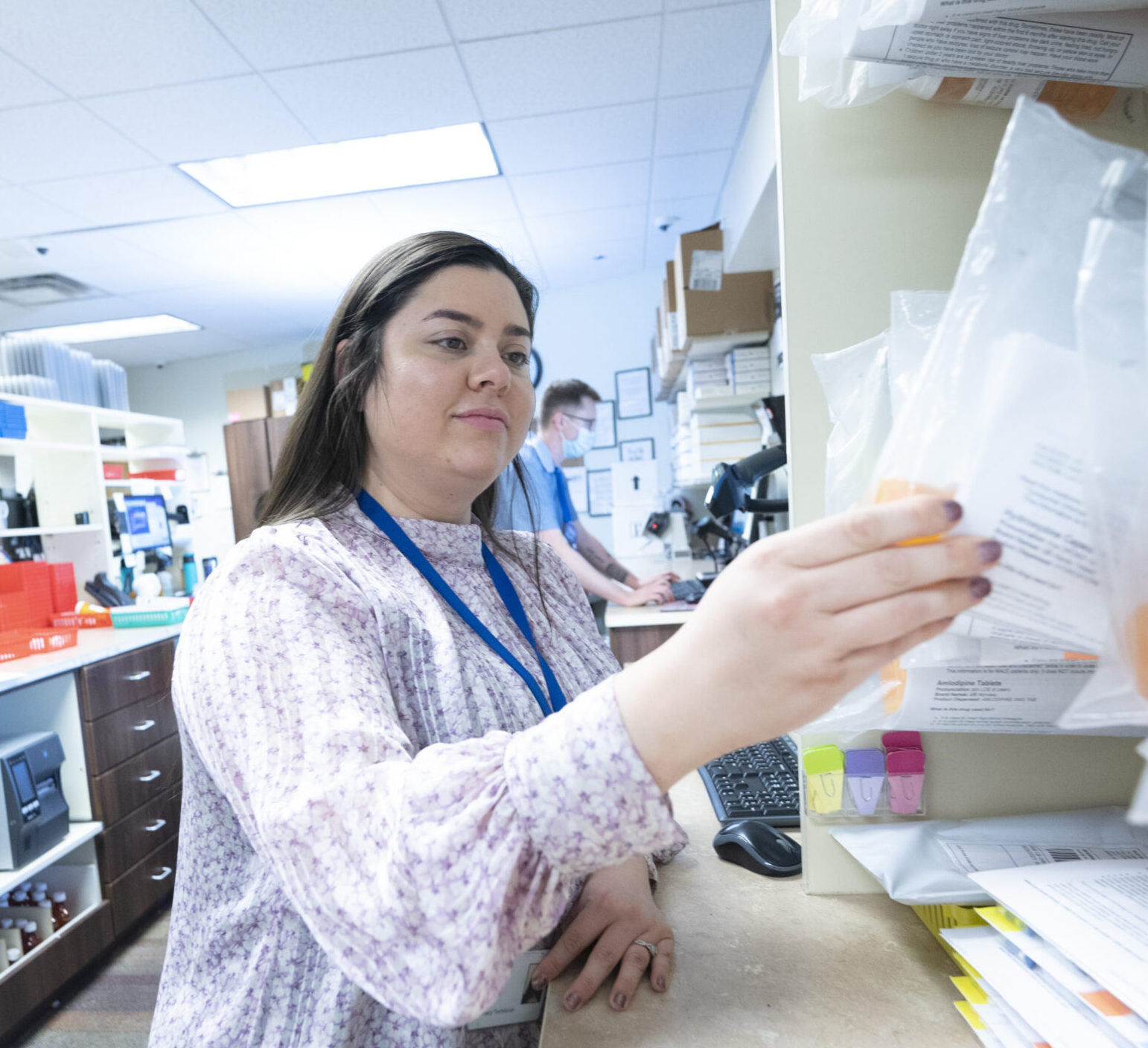Have questions on buprenorphine-containing products?
You’re not alone.
See below for answers to your common questions surrounding these popular medication-assisted treatment prescriptions.
- What is buprenorphine and what is it used for?
- Buprenorphine is a Food and Drug Administration (FDA) approved medication used to treat opioid use disorder (OUD). It is the first medication for treating OUD that can be prescribed and/or dispensed in physician offices, significantly increasing access to treatment for OUD.
- What is Suboxone® and what is it used for?
- Suboxone® is a medicine that fuses buprenorphine and naloxone – a medication used to reverse or reduce the effects of opioids – that works to decrease the severity of withdrawal symptoms and reduce a patient’s dependence on opioids.
- What is Sublocade® and what is it used for?
- Sublocade® is an extended-release form of buprenorphine that continuously releases and sustains medicine levels throughout the month. It blocks the rewarding effects of opioids, and when paired with a full treatment plan can be an effective tool in combatting opioid use disorder. Prior to starting the injectable Sublocade®, a prescriber must induce and adjust treatment with eight to 24 milligrams of a transmucosal buprenorphine-containing product for a minimum of seven days to ensure tolerability.
- How is Sublocade® administered?
- Sublocade® is injected subcutaneously by a treatment provider as a liquid and, once inside the body, turns to a solid gel called a depot. The depot gradually releases buprenorphine at a controlled rate all month. Please note – pharmacists are not currently permitted to administer Sublocade®.
- Is Sublocade® a part of a Risk Evaluation and Mitigation Strategies (REMS) program?
- Yes, for safety reasons Sublocade® is included in a REMS program. Only certain pharmacies can dispense Sublocade® and it can only be dispensed to a licensed medical provider, not to individual consumers. Furthermore, Sublocade® can only be delivered to a prescriber’s DEA registered address.
- Why does the Substance Abuse and Mental Health Services Administration (SAMSHA) recommend a medical exam before prescribing Suboxone®?
- Patients living with opioid use disorder often have comorbidities or other health concerns that are occurring alongside their opioid use disorder diagnosis. Additionally, anytime you start a patient on a new drug therapy, its best to have a baseline understanding of the patient’s health profile. For these reasons and more, a medical exam is recommended before prescribing Suboxone® for a patient.
- Are patients billed directly for Sublocade® treatment?
- Yes, the patient’s insurance plan is billed directly
Want to learn more?
Curious how medication-assisted treatment can help support your patients? Contact us today and we’ll be in touch.
"*" indicates required fields
Information and sources on buprenorphine-containing products were taken from www.sublocade.com and www.suboxone.com.






